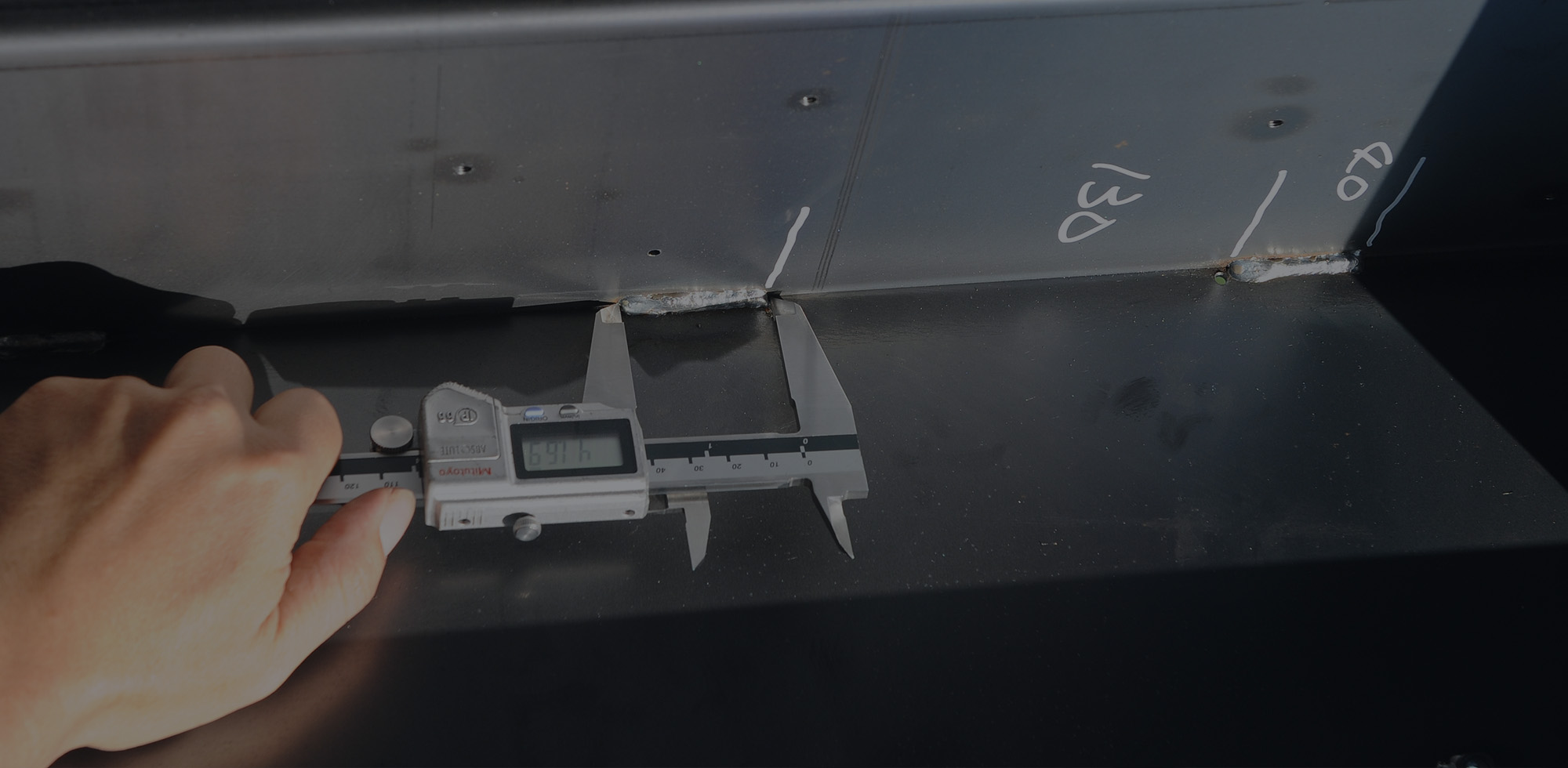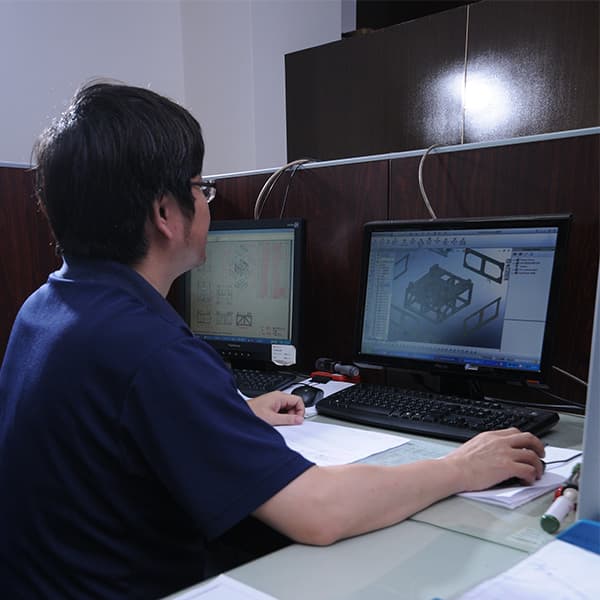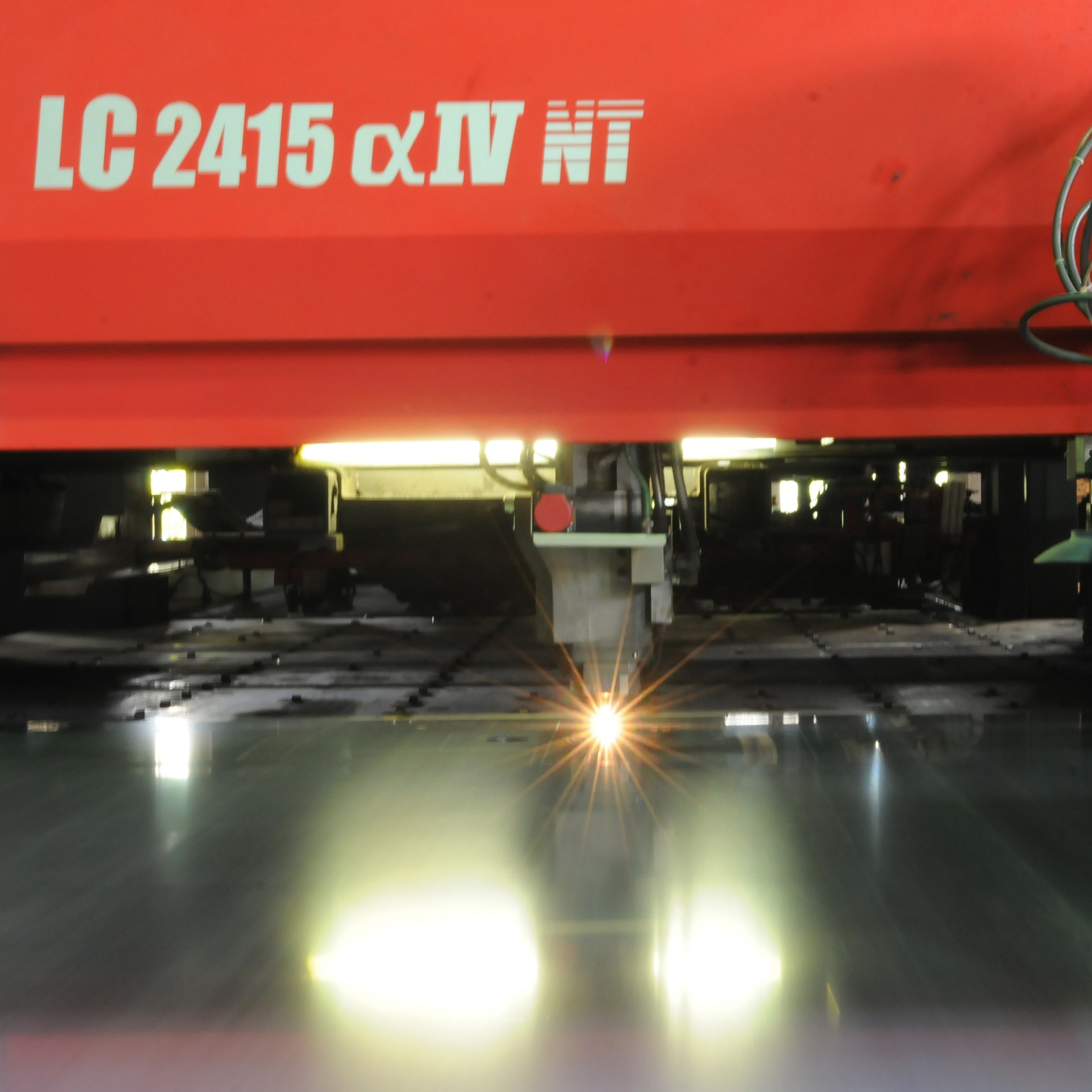Selecting Sheet Metal Materials
According to design requirements, selecting appropriate sheet metal materials is crucial for ensuring product quality and performance. Common sheet metal materials include iron, aluminum alloys, and stainless steel.
In terms of iron materials, the commonly used one is SPCC steel sheet, which includes different types such as SPCC-SD, SPCC-SB, SPCC-1B, and SPCC-2B. These types primarily describe the surface condition and quality grade of the steel sheet. Specific selection should be evaluated based on different countries, production standards, and applications.
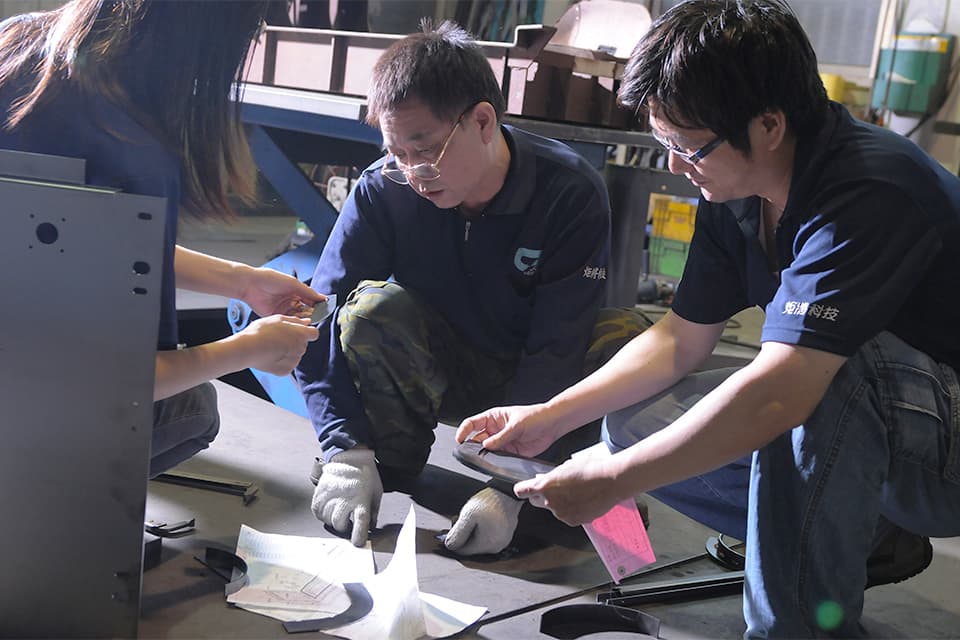
Aluminum alloys are another common type of sheet metal material, with various series and characteristics. The 1000 series is pure aluminum and is commonly used in cable coverings and kitchen utensils. The 2000 series is copper-aluminum alloy, which has excellent strength and corrosion resistance and is suitable for aerospace industries. The 3000 series is manganese-aluminum alloy, which has good corrosion resistance and weldability and is commonly used in can packaging and automotive parts. The 5000 series is magnesium-aluminum alloy, which has excellent corrosion resistance and weldability and is often used in ships and marine structures.
The 6000 series is silicon-aluminum alloy, which has good processing performance and strength, and is commonly used in building structures, automotive parts, and electronic products. The 7000 series is zinc-aluminum alloy, which has extremely high strength and corrosion resistance, and is frequently used in aerospace and sports equipment. The 8000 series includes other aluminum alloys such as aluminum-magnesium-manganese alloy and aluminum-lithium alloy, which have specific properties and application areas.
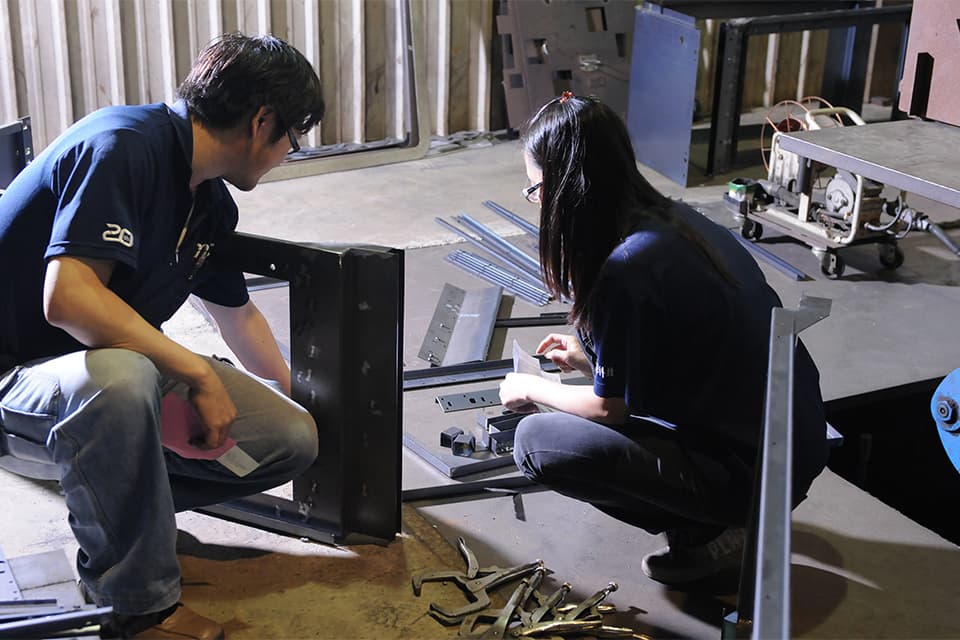
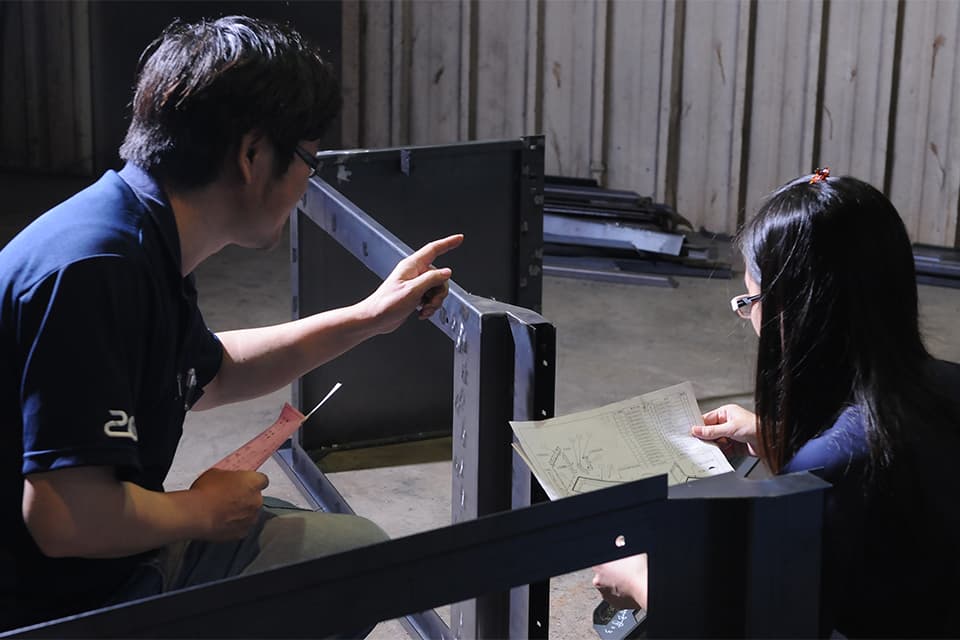
Stainless steel is an alloy steel that contains a certain amount of chromium to provide corrosion resistance. It includes common types such as 304/304L and 316/316L, which have good corrosion resistance and weldability. 321, with the addition of titanium (Ti) element, offers better high-temperature performance. 310 has excellent high-temperature corrosion resistance and is commonly used in high-temperature furnaces and heat treatment equipment. 430 stainless steel is commonly used in general applications and has good corrosion resistance and mechanical properties. 410 stainless steel has good hardness and wear resistance and is often used in tools, door locks, etc. 2205 stainless steel, on the other hand, has excellent corrosion resistance and strength, and is commonly used in chemical, marine, and petroleum industries.
When selecting the appropriate sheet metal material, it is necessary to evaluate and choose based on the desired material characteristics, stress requirements, corrosion resistance, processability, and other factors. Choosing the right material can ensure the durability, performance, and appearance of the product.

When selecting the appropriate sheet metal material based on design requirements, several commonly used materials can be considered:
- Iron (SPCC)
- SPCC-SD: This is a standard commercial quality low-carbon cold-rolled steel sheet with a bright, smooth surface.
- SPCC-SB: This is a commercial quality low-carbon cold-rolled steel sheet with a bright, smooth surface.
- SPCC-1B: This is a special quality low-carbon cold-rolled steel sheet with a bright, smooth surface.
- SPCC-2B: This is a special quality low-carbon cold-rolled steel sheet with a bright, smooth surface.
- Aluminum Alloys
- 1000 Series: Pure aluminum, commonly used in cable coverings, kitchenware, etc.
- 2000 Series: Copper alloy aluminum with excellent strength and corrosion resistance, often used in aerospace industries.
- 3000 Series: Manganese alloy aluminum with good corrosion resistance and weldability, commonly used in can packaging and automotive parts.
- 5000 Series: Magnesium alloy aluminum with excellent corrosion resistance and weldability, frequently used in marine structures and ships.
- 6000 Series: Silicon alloy aluminum with good processing performance and strength, commonly used in building structures, automotive parts, and electronic products.
- 7000 Series: Zinc alloy aluminum with extremely high strength and corrosion resistance, often used in aerospace, sports equipment, etc.
- 8000 Series: Other alloy aluminum, such as aluminum-magnesium-manganese alloys and aluminum-lithium alloys, each with specific characteristics and specialized applications. These are just a few examples of aluminum alloys, each with different characteristics and applications. The selection of a specific aluminum alloy should consider factors such as desired material properties, stress requirements, corrosion resistance, and processability.
- Stainless Steel (SUS)
Stainless steel is an alloy steel that contains a certain amount of chromium (Cr) to provide corrosion resistance. Here are some common types:
- Austenitic Stainless Steel:
- 304/304L: One of the most common stainless steel types, offering good corrosion resistance and weldability.
- 316/316L: Provides higher corrosion resistance, especially suitable for marine environments and chemical industries.
- 321: Contains titanium (Ti) for improved high-temperature resistance.
- 310: Excellent high-temperature corrosion resistance, often used in furnaces and heat treatment equipment.
- Ferritic Stainless Steel:
- 430: Commonly used for general applications, offering good corrosion resistance and mechanical properties.
- 446: Excellent high-temperature resistance, suitable for high-temperature furnaces and heat treatment equipment.
- Martensitic Stainless Steel:
- 410: Provides good hardness and wear resistance, commonly used in tools, locks, etc.
- 420: Addition of carbon (C) for higher hardness, often used in tools and surgical instruments.
- Duplex Stainless Steel:
- 2205: Offers excellent corrosion resistance and strength, commonly used in chemical, marine, and petroleum industries.
- Austenitic Stainless Steel:
These are just a few examples of stainless steel types, and stainless steel has widespread applications in various industries. Each steel type has unique characteristics and uses. When selecting the appropriate stainless steel type, factors such as corrosion resistance, mechanical properties, high-temperature resistance, and specific applications need to be evaluated and considered.
- No.92-2, Guangqi Rd., Shengang Dist., Taichung City 429, Taiwan (R.O.C.)
- TEL: 886-4-2525-2052
- FAX: 886-4-2528-4500
- E-Mail: brian@ju-sheet.com.tw





